Who will win Russia's "near abroad"?
Adelina Marini, August 11, 2010
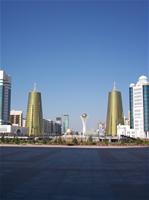 One of the most important conditions for success in geopolitics is to know what you want. The next important condition is - to know how to get it. The vision of the European Union towards its neighbours, however, lacks both. As Katinka Barysch writes, deputy director of the Centre for European Reform, EU's Neighbourhood Policy has proved to be rather ineffective. And, regarding the countries from the post-Soviet area, the EU, no matter that it has created a special branch of its Neighbourhood Policy, directed to those countries (the Eastern Partnership), hardly has a foothold in the region.
One of the most important conditions for success in geopolitics is to know what you want. The next important condition is - to know how to get it. The vision of the European Union towards its neighbours, however, lacks both. As Katinka Barysch writes, deputy director of the Centre for European Reform, EU's Neighbourhood Policy has proved to be rather ineffective. And, regarding the countries from the post-Soviet area, the EU, no matter that it has created a special branch of its Neighbourhood Policy, directed to those countries (the Eastern Partnership), hardly has a foothold in the region.
The presence in such diverse zones like the Caucasus and Central Asia is of key 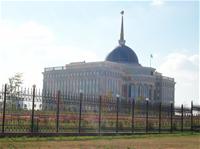 importance for each country, striving to be a global leader. The same goes for formations of countries, like the EU. The problem is, however, that the situation in the Caucasus is much more different than in Central Asia, where there are both very rich countries and very poor. There are also differences in their political establishment. Therefore, any approach becomes even more difficult because of the fact that the EU is no less diverse in the same sense, which makes it almost impossible to create a common policy towards these regions.
importance for each country, striving to be a global leader. The same goes for formations of countries, like the EU. The problem is, however, that the situation in the Caucasus is much more different than in Central Asia, where there are both very rich countries and very poor. There are also differences in their political establishment. Therefore, any approach becomes even more difficult because of the fact that the EU is no less diverse in the same sense, which makes it almost impossible to create a common policy towards these regions.
The developments require the EU to find a solution quickly because, as Katinka Barysch writes, much of America's attention has moved elsewhere. The dominant feeling in the countries of Russia's "near abroad" is that the US are no longer interested in them, except when they can use them as launch pads for their operations in Afghanistan. The other key player in the region is Russia itself, which, however, does not possess the necessary tools to project its power in the neighbourhood.
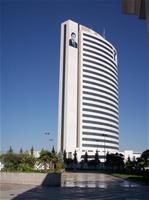 This leaves energy as the only instrument Russia could use in its approach towards its neighbours, the expert says. In fact, this is the only instrument some of its neighbours could use to break off with their giant neighbour. According to Ms Barysch, the oil producing countries in the Caucasus and Central Asia have succeeded in the past years to secure a place for manoeuvre, by building strong links with China, Iran and Turkey. All countries in the region would win if they could become less dependent on Russia not only in terms of trade and energy, but also politically, Katinka Barysch writes.
This leaves energy as the only instrument Russia could use in its approach towards its neighbours, the expert says. In fact, this is the only instrument some of its neighbours could use to break off with their giant neighbour. According to Ms Barysch, the oil producing countries in the Caucasus and Central Asia have succeeded in the past years to secure a place for manoeuvre, by building strong links with China, Iran and Turkey. All countries in the region would win if they could become less dependent on Russia not only in terms of trade and energy, but also politically, Katinka Barysch writes.
This is what the EU should use in its capacity as the largest market of energy  resources, because this would give the Union a possibility to distribute more successfully its foreign policy visions. Because, here is the situation, as described by Katinka Barysch: The recent standoff between Belarus and Russia over gas prices and transit fees only highlighted Minsk's lack of options; the constant conflicts with Ukraine resulted in Russia getting the lease for its Black Sea fleet in Sevastopol extended, which gives Moscow a significant strategic advantage. In the same time, Russia has no leverage to influence countries like Azerbaijan and Turkmenistan.
resources, because this would give the Union a possibility to distribute more successfully its foreign policy visions. Because, here is the situation, as described by Katinka Barysch: The recent standoff between Belarus and Russia over gas prices and transit fees only highlighted Minsk's lack of options; the constant conflicts with Ukraine resulted in Russia getting the lease for its Black Sea fleet in Sevastopol extended, which gives Moscow a significant strategic advantage. In the same time, Russia has no leverage to influence countries like Azerbaijan and Turkmenistan.
For example, Turkmenistan opened a large gas pipeline to China at the beginning of the year and signed another gas delivery contract with Iran in June. The country with a strongly authoritarian rule has invited international oil majors to help build an internal pipeline that could one day deliver Turkmen gas from the massive Yolotan field to the Caspian shores and from there to Europe. And Azerbaijan has spurned a Russian offer to buy up all the gas from its new Shah Deniz 2 field, instead committing it to Turkey and to European buyers.
 Given the pragmatism, specific for all the countries in the post-Soviet area, the EU should bear in mind that it is a new player in the region and its traditional approach of exporting norms and values on a bilateral basis is not well accepted by them. Another important element the European diplomacy should take into account is Turkey's growing influence in the region. Ankara, although slowly, is in a process of EU accession negotiations, but the geopolitical achievements of the country show that it is trying to secure an alternative future in case the negotiations get stuck completely.
Given the pragmatism, specific for all the countries in the post-Soviet area, the EU should bear in mind that it is a new player in the region and its traditional approach of exporting norms and values on a bilateral basis is not well accepted by them. Another important element the European diplomacy should take into account is Turkey's growing influence in the region. Ankara, although slowly, is in a process of EU accession negotiations, but the geopolitical achievements of the country show that it is trying to secure an alternative future in case the negotiations get stuck completely.
So far what could be said about the common European diplomacy is that it is starting slowly to build itself under the leadership of EU's High Representative for Foreign Affairs baroness Ashton. She managed to fit into the short deadline for the creation of the European External Action Service, one of the advantages of which is that it is transforming the recent European Commission Delegations around the 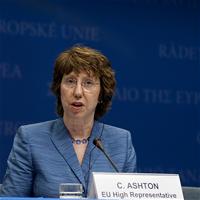 world into real embassies - in other words places where real politics could be led on the spot.
world into real embassies - in other words places where real politics could be led on the spot.
In order this to be realised, however, it will be necessary a consensus to be built at a European Council level on common visions of the 27 Member States which regions of the world are important for the Union and what the right approach should be. A task, which looks even harder against the backdrop of the budgetary crisis in many of the Member States. It imposed significant cuts of spending which might prove to be at the expense of political and economic influence around the world and even in the neighbourhood.
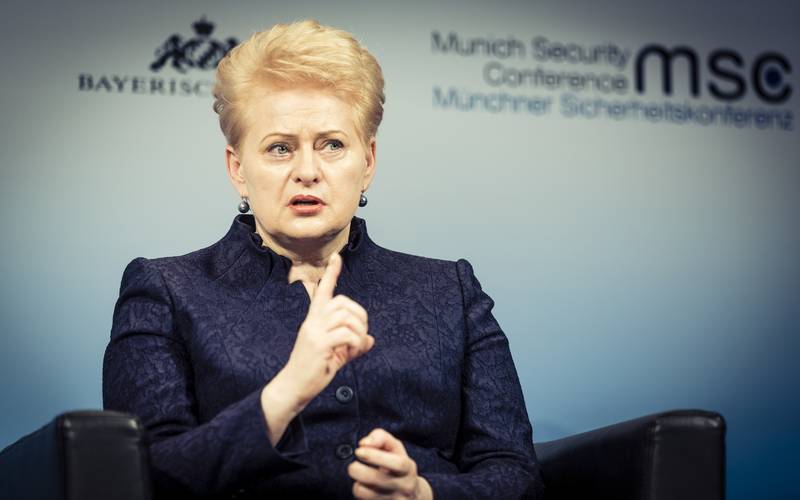 Dalia Grybauskaite | © MSC/Koerner
Dalia Grybauskaite | © MSC/Koerner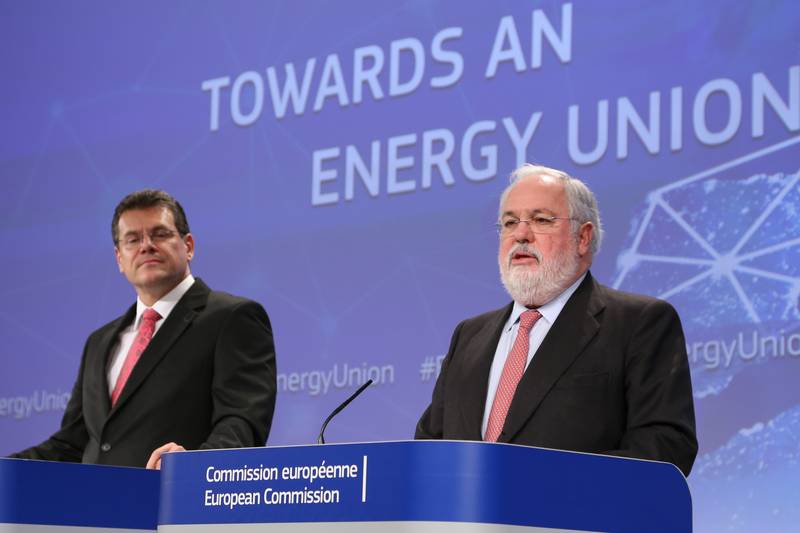 Maros Sefcovic, Miguel Arias Canete | © European Commission
Maros Sefcovic, Miguel Arias Canete | © European Commission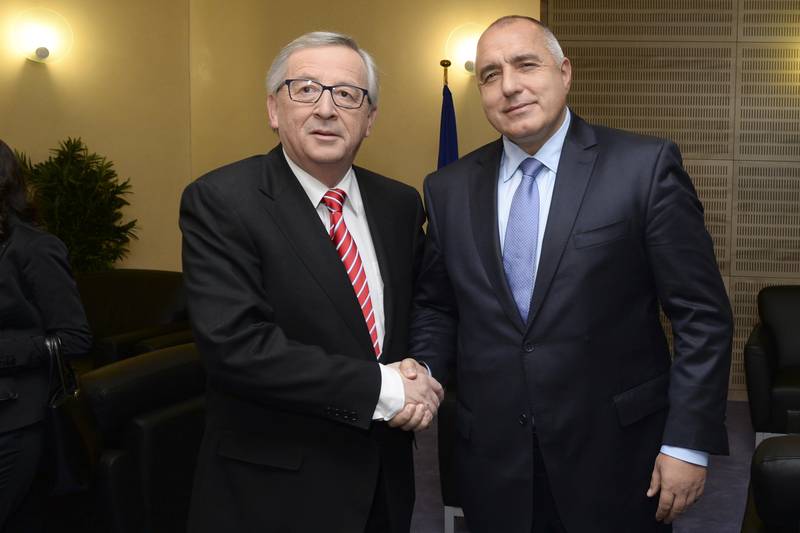 Jean-Claude Juncker, Boyko Borissov | © European Commission
Jean-Claude Juncker, Boyko Borissov | © European Commission